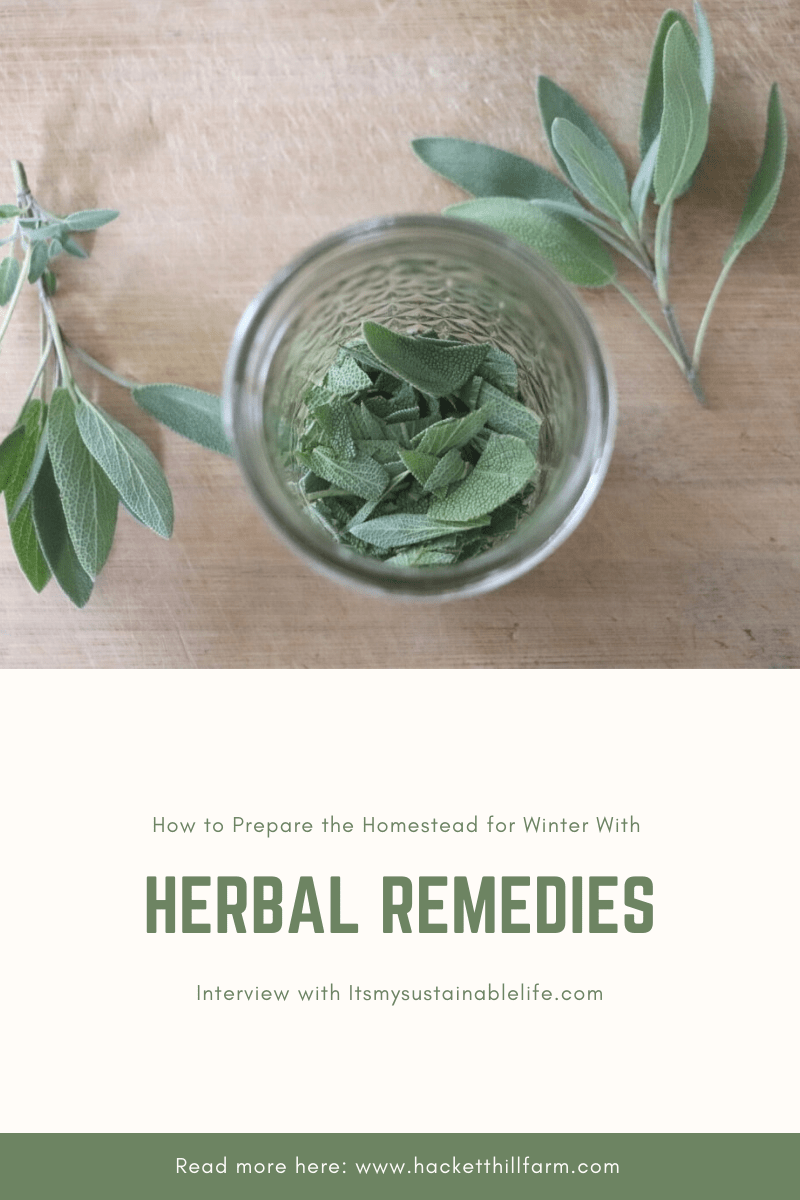
How to Use Herbal Remedies on the Homestead (an Interview)
With cold and flu season upon us, what better way to prepare the homestead for winter than with Herbal remedies. These remedies are what our ancestors used before modern medicine came into play and continue to be a great way to keep your family happy and healthy on the homestead.
Herbs are a multi purpose plant at the homestead. They can be used to make mouthwatering recipes, in cleaning, and as medicine for animals and homesteader alike. There are many different uses of herbs in medicine and wellbeing that we will talk about today.
Before we meet our homesteader let’s learn a little more about herbs and their uses in medicine. We will also cover some important definitions that will help you better understand the uses of herbs on the homestead.
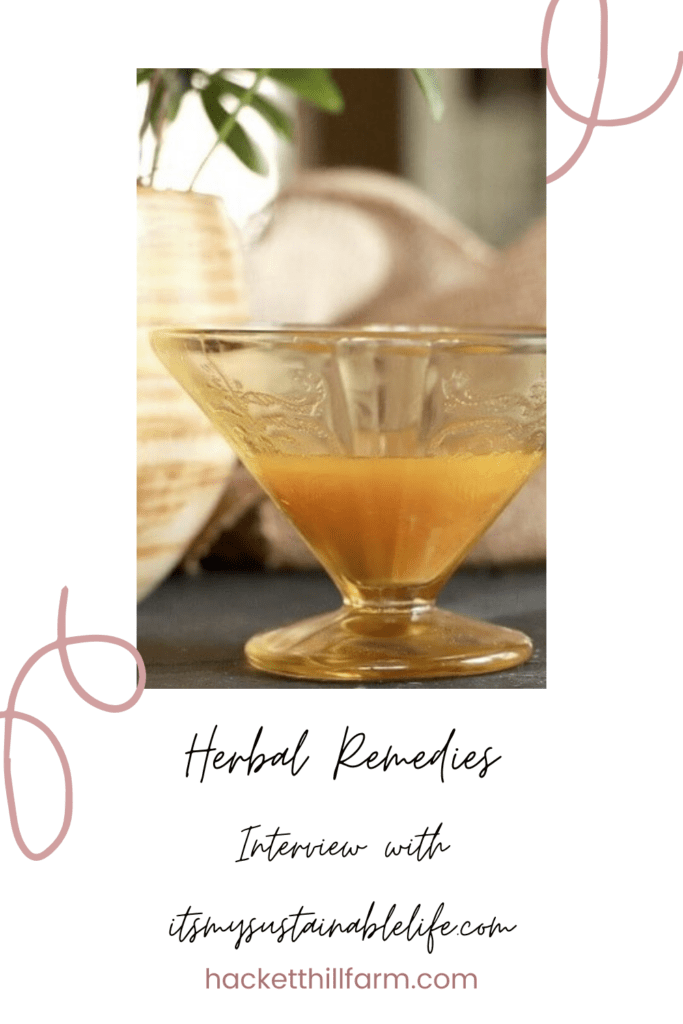
Medicinal versus Tonic Herbs
When talking about herbs that are used for healing and wellness there are two different types that you should be aware of, Medicinal and Tonic.
What are Medicinal Herbs
Medicinal Herbs are used as medicine. These herbs are not intended to be taken daily and can be harmful if taken for an extended period of time or at improper doses. Much like any modern day medicines, these medicinal herbs should be taken with the same level of care.
There are a number of medicinal herbs that can both be grown and purchased right at your local super market! In our small town we have a healer that runs an apothecary and focuses her medical practice around natural healing.
Wherever you get your medicinal herbs always use caution and gain understanding of how to safely use these herbs like you would with any other medicine.
What are Tonic Herbs
Tonic herbs are used for daily wellbeing and physical upkeep. These herbs are intended for general use and can be taken in larger doses than medicinal herbs. While medicinal herbs are focused on treating a particular ailment, tonic herbs are intended for general body wellbeing and prevention.
These plants have a lower toxicity rate and are safe for use in larger amounts. Their gentle nature helps to be a strong foundation of health for you and your family. This makes tonic herbs a great companion for any homesteader!
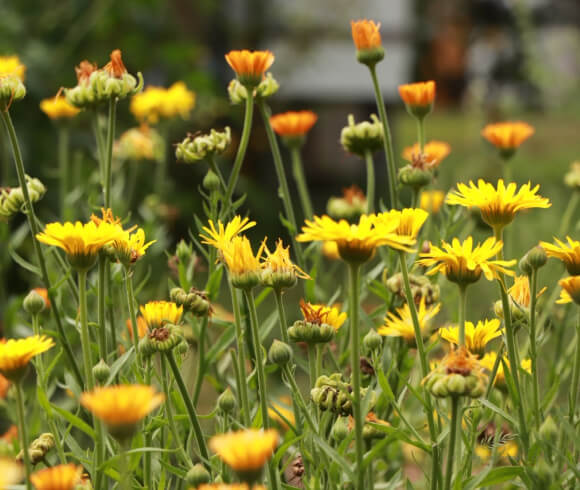
How to Use Herbs on the Homestead
Herbs can be used fresh in culinary preparations to help elevate any meal. There is nothing more delicious than homemade salsa with a bunch of fresh cilantro or mashed potatoes with freshly snipped chives and butter. However, when using for medicinal or wellbeing applications there are often additional steps that need to be taken before the herbs can be used to their full benefit.
We are going to cover a few of these preparations and their definitions before heading into our interview with Suzan.
Dried
Drying your herbs will allow for longer term storage. Many of the preparations that we will discuss below will require you to dry your herbs.
You can dry herbs in a dehydrator which is likely the quickest way, on a rack in the sun, or by hanging your herbs. Hang drying is the most common method, but can be tricky as you need to ensure proper airflow to prevent molding. I prefer to use the dehydrator at a nice low temperature to ensure my herbs are properly dried, but any method I talked about here are affective.
To store your herbs, you will need to do so in an airtight container. Make sure to label with name and date clearly and keep out of direct sunlight when storing as this can shorted the shelf life of your dried herbs.
If you wish to keep fresh herbs handy there are two ways to store them that will keep them fresh. For herbs like Parsley and cilantro, place them in a vase of cool water and store in the fridge. This will keep the herbs fresh for up to ten days. If the water gets murky, change it out!
For “woody” herbs like rosemary or oregano, store in the fridge wrapped in a damp paper towel. This will keep the herbs for eight to ten days.
Teas and Infusions
Herbal teas and infusions are a delicious way to get a little health boost. By steeping dried herbs in hot or boiling water you create a drink infused with essential oils that is sure to keep you in tip top shape.
The great thing about creating tea is that you can make it and drink it almost immediately. Most other herbal concoctions will require some time to develop before you are able to reap their benefits. Infusions are similar to teas, but do take around six to eight hours to steep.
If you want to learn more about infusions and their benefits check out this post from Suzan that discusses the benefits of these healthy concoctions
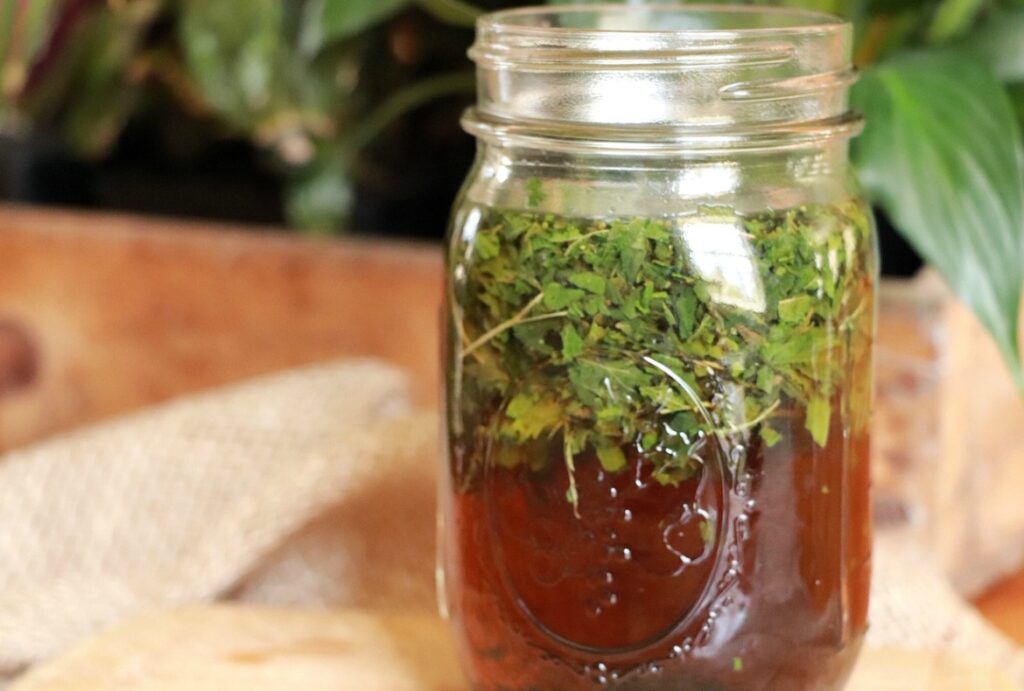
Tincture
Next on our list of herbal cocktails is the tincture. A tincture is a combination of herbs and alcohol as a solvent. These remedies pack a high health benefit punch when something is ailing you. When stored correctly tinctures can last 18 to 24 months in the medicine cabinet!
Suzan has a whole post on tinctures that you have to check out. It gives you a clearer picture of what tinctures are and how they are used as well as their benefits.
Elixirs
Elixirs are very similar to tinctures. They are a combination of alcohol and herbs that have been macerated and the herbal benefits extracted. One difference is elixirs contain a sweetener as well such as honey.
Elixirs can be used for everything from mood boosting to pain relief and relaxation. Maybe there really is an elixir of life?!
Oxymel
We have all heard of the health benefits of honey. Honey has been used for years as an anti-inflammatory and anti-bacterial agent. We have also heard of the powerful health benefits of Apple Cider Vinegar with the Mother. Combine the two and you have a healthy powerhouse!
Combining honey and vinegar is just what Oxymel does! You can learn more at itsmysustainablelife.com and pick up an easy Oxymel recipe!!! I plan to make the Spicy Sage and Ginger Oxymel today because I have been feeling a slight head cold coming on and I want to nip it in the bud!
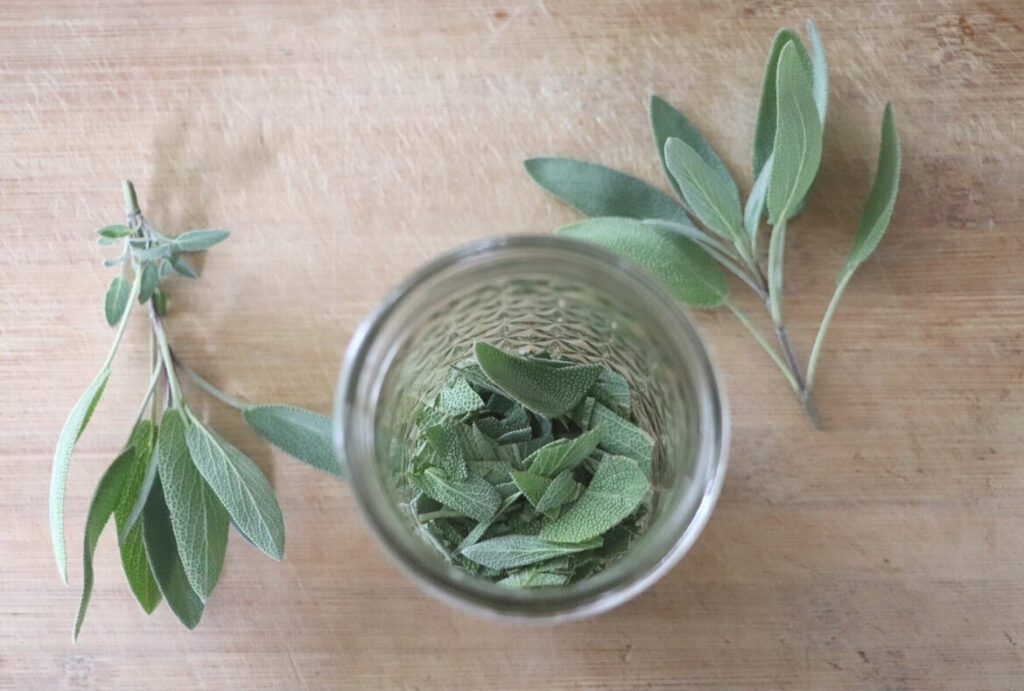
Salves and Balms
Herbal salves and balms are great for those expected boo boos, scrapes, and insect stings that you are bound to get on the homestead. They can be used to reduce muscle soreness after a long day of working in the garden and restore your cracked overworked hands.
Herbal salves and balms are a must have in any homesteaders medicine cabinet. Suzan has a great recipe for a Healing Gardener’s Hand and Skin Salve that is a must have!
Alright y’all! Now that we are all up to speed we are ready to head into our interview!
Meet the Homesteader- Suzan
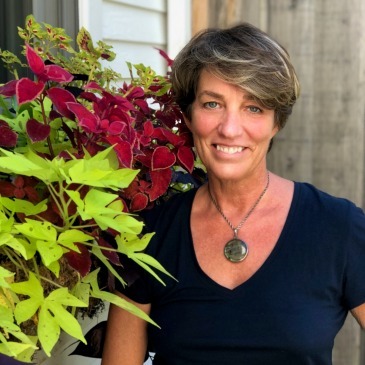
If you haven’t guessed it yet, today we are going to be chatting with Suzan from itsmysustainablelife.com about herbs and herbal remedies.
Suzan has been growing herbs and using them for both culinary and medicinal purposes for over twenty years. Her blog is not only beautifully written, but chock full of helpful tips and delicious recipes. She is a must read if you are interested in leading a more sustainable life.
Let’s dive right into the interview and hear what she has to say about the herbs in her garden and how she prepares her homestead for winter with herbal remedies.
Interview with Itsmysustainablelife.com founder Suzan Ferreira
As Homesteaders we are always looking towards the next season. As we head into the long winter months, how do you prepare?
I take stock. I look at what’s on hand, how much I have remaining in my herb & apothecary cupboard, what needs to be harvested, dried, saved, or made into tinctures, elixir’s, and oxymels, as well as any other medicinals that may need to be made up.
Typically, I like to have it scheduled out in my planner come September as that gives me about a month to make any adjustments and still harvest some should I have missed anything.
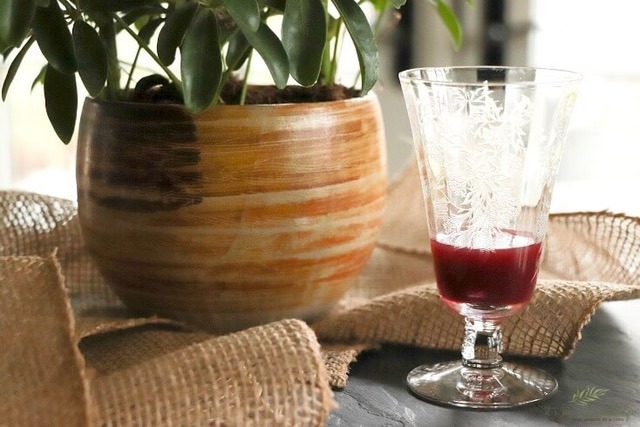
What was it that attracted you to growing and using herbs in this way?
In a nutshell, healing. I was diagnosed with EBV at the age of 36, shortly after my daughter was born. With mainstream medical options being very limited at that time, I turned toward treating my auto-immune issues with a more holistic approach.
During the initial stages of my diagnosis, I searched for relief by utilizing as many alternative therapies as possible. One being adopting an Ayurvedic approach to healing which included the use of many herbs. Through this modality, I discovered my body responded exceptionally well to herbs. It was a natural segue to growing my own and utilizing the healing properties herbs had to offer.
As an avid gardener I began to expand my knowledge of both utilizing herbs medicinally and growing my own. I found a deep sense of well-being when growing herbs, foraging herbs, and creating herbal products.
What are the top three herbs that you believe all beginner herbalist should grow and why?
Oh, so many herbs, where to begin? As a beginner, I would first answer the question of whether you are looking to utilize the herb for its medicinal values or as an addition to your culinary cabinet.
For the culinary inclined the easiest herbs to grow would be sage, parsley, oregano, dill, basil, and cilantro to name just a few. All these herbs are very easy to grow and need very little care, & grow just about anywhere, from your windowsill to containers or garden beds.
For medicinal purposes, I would recommend my favorites:
Calendula.
This versatile flowering plant is one of my favorites & beginner friendly.
Calendula is full of antioxidants being high in flavonoids & carotenoids, is nutritious to both eat and drink for both yourself and your livestock & chickens as well, makes for a wonderful oil infusion used for everything from diaper rash to eczema/psoriasis issues to dry, chapping skin.
Elderberry.
Elderberry is very easy to grow here in the NE and throughout gardening zones 3-8, and requires very little care.
Filled with essential nutrients and high in vitamins C, A, & B6, and boasts antibacterial & anti-inflammatory properties. Elderberry benefits go far beyond supporting the immune system throughout the cold & flu season.
Both the elderflower and the berry itself can be utilized in the making of many apothecary items. Elderberry is often used as a digestive aid, for improving heart & respiratory health, and of course as a preventative for seasonal viruses.
Yarrow.
An herb that often surprises those just beginning is yarrow. Super easy to grow and use for everything from colds & seasonal flu, toothaches, digestive issues, circulatory support, to staunch the bleeding from a cut or injury. Check out this post on Yarrow and its many uses!
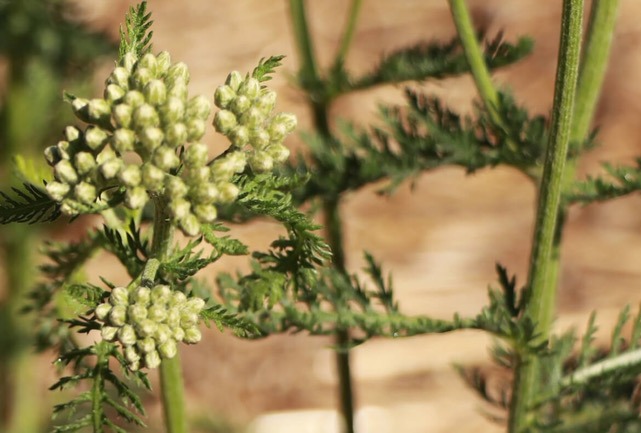
Do you have any thoughts or tips for new or curious herbalist?
I recommend doing your due diligence, research, and educate yourself. Herbs are powerful medicinals and as such should be approached with care.
And start slowly with a few simple herbs you can experiment with. Maybe make an elderberry syrup and research what herbs would be appropriate (or not appropriate) for you and your families needs. Or make a simple herbal infusion with an herb that would be of benefit.
Be patient. When using herbs medicinally we need to have patience. Herbs take time to make (some tinctures can take upwards of 6 months to make) and to take (often an herb can take 4-6 weeks for most) full effect, especially those dealing with chronic conditions.
Herbs are not the end all be all of our overall health. Herbs work synergistically with high quality food, fresh air & sunlight, & mindfulness. It’s a total package when it comes to holistic healing.
What recipes for herbal remedies would you share/recommend with beginners looking to use herbs for wellbeing?
Easy recipes for any beginner to make no matter if they grow their own herbs or purchase their supplies would be a traditional Fire Cider or Elderberry Syrup, both of which I have complete tutorials on how to do.
These tonics or elixirs are both extremely efficacious on many levels and can be adjusted as needed with little effort.
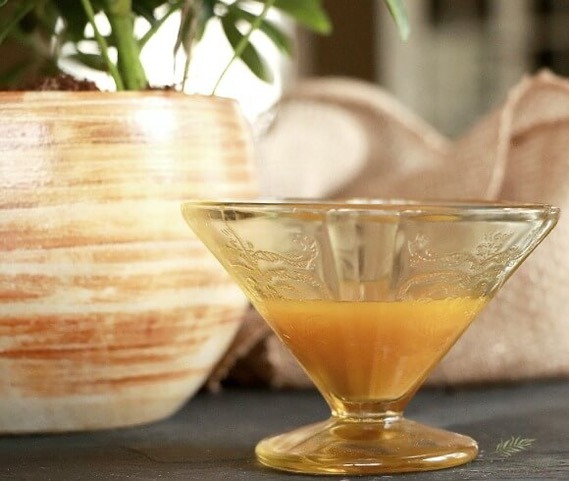
Interview on Herbal Remedies-Conclusion
Suzan has provided us some great tips and insights into growing herbs and how to use them to prepare the homestead for winter. By following these simple tips and tricks you can keep you and your family in tip top shape this winter.
If you are a little late to the herb growing game, but are looking for a way to keep your family safe naturally this winter, check out Suzan’s Etsy shop! You can get everything you need sent straight to your door.
You can also follow Itsmysustainable life on social media to stay on top of new posts and new happenings in her home apothecary!
Follow her on Facebook, Instagram, Pinterest, and Twitter!
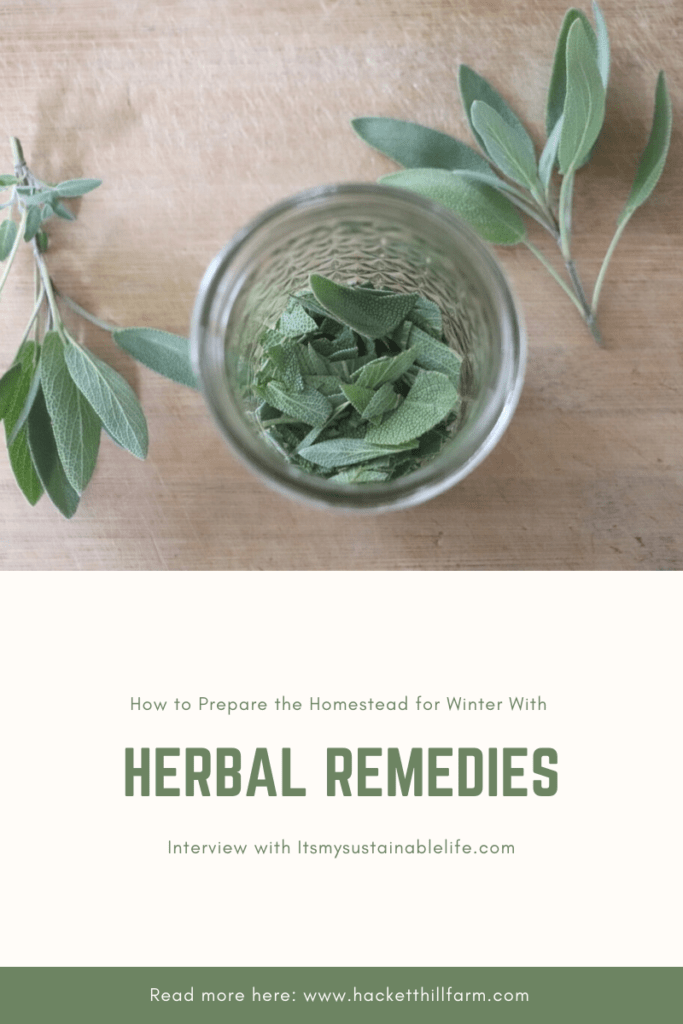
Resources to Help New Herbalists with Herbal Remedies
If you are looking to grow your knowledge of herbs and how to use them in healing this winter we also recommend that you check out these books to learn more!
- The Homesteader’s Herbal Companion by Amy K. Fewell– this book is a must have in your reading arsenal. Amy breaks down how to grow, preserve, and use herbs for overall wellbeing.
- Alchemy of Herbs: Transform Everyday Ingredients by Rosalee De La Forêt– Rosalee studies 29 of the most commonly used herbs today and brings the science that backs their use. Packed full of useful information and recipes this is a great book to have on hand.
- The Herbal Apothecary by JJ Pursell-This comprehensive guide with step by step instructions is a great way for beginners to gain the knowledge they need to start their own home healing program.
We would love to hear from you! Leave us a comment below and let us know what your favorite herb in the garden is! Don’t forget to subscribe to our newsletter to the right for updates on the blog!
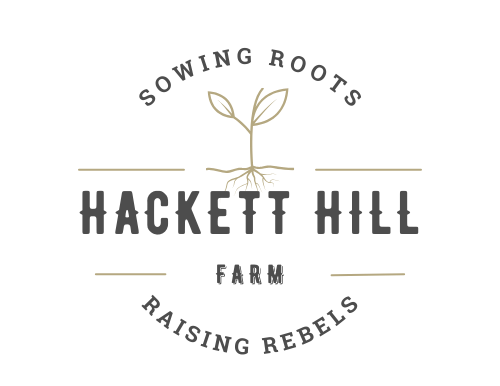
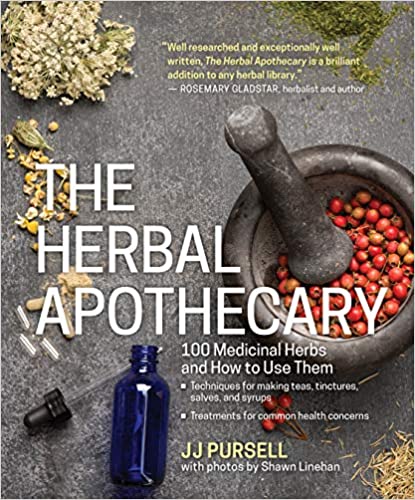

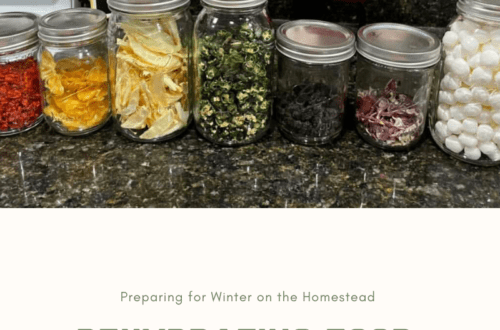
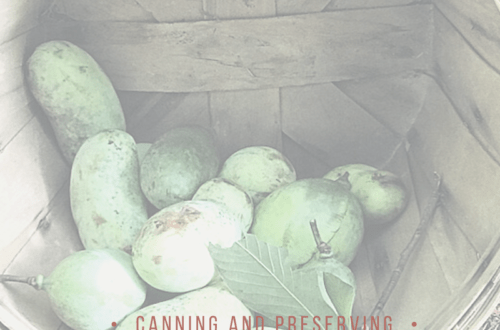
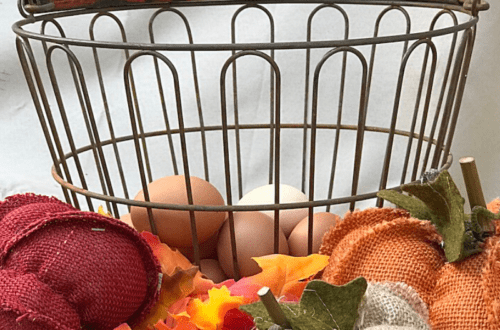
9 Comments
Keep Calm & Drink Coffee
I have always admired those who know herbs and their uses.
Sincere congratulations!
hacketthillfarm
Thank you! Suzan is wonderful. She has really inspired me to do more than just cook with herbs!
JamieAdstories
An interesting article. I absolutely love herbal tea and can appreciate that these are very healthy tonics.
Michelle Gast
So resourseful. I have a little green house in my backyard where I grow basil and cilantro. I should try to grow more herbs next summer. I like how you tell us about herbs and their uses! Thanks for sharing!!!
~Michelle
https://michellescrazybusylife.net
Seriah Sargenton
I’m always looking to learn more about herbal medicines and their benefits. Good post!
Eleanor Jones
Thank you so much for sharing these remedies, I love trying to find herbal ways to improve my physical and mental health. Great post!
Rosie 🌱🌳 🌎💚 (@greenrosielife)
Nature has so much than we can use to keep us healthy. I am slowly learning what to use for simple ailments.
Jaya Avendel
Loved reading this amazing interview as it mirrors much of what I and my family do on our own small homestead! Harvesting, drying, and tincturing herbs is a year-long process for us, as different plants are in season at different times. We also make herb-infused oils to use in salves and balms, as herbal remedies are a big part of our medicinal routine. <3
Thank you so much for sharing!
hacketthillfarm
Thank you so much! I loved really digging in with Suzan on this piece. It is so amazing what plants can do to keep us healthy and happy.